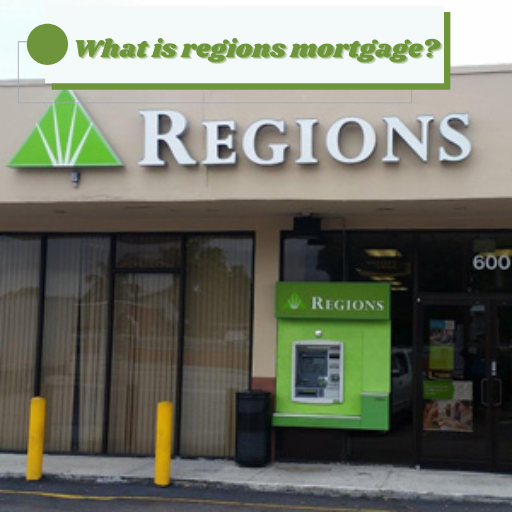When you buy a home, you may need to choose between a mortgage or a deed of trust. Both are legal contracts where a lender gives a loan and the borrower promises to repay it. The key difference is that a deed of trust includes a third party(a trustee) who holds the title until the loan is paid off. In a mortgage, the lender holds the lien directly. If the borrower stops making payments, the foreclosure process works differently depending on which agreement is used.
Both agreements include a promissory note outlining the borrowed money and repayment terms. Understanding these differences is important because they affect how the property is handled if the loan isn’t repaid. It’s always wise to consult a financial advisor to ensure your long-term financial plan is solid.
What is the Difference Between a Deed of Trust and a Mortgage?
When buying a home, you might encounter trust deeds and mortgages. Both involve securing a loan with real estate, but they differ in how they operate and who is involved. Understanding the difference between trust deeds and mortgages can help you make the right decision for your situation. Let’s break down each and compare them.

What is a Deed of Trust?
A deed of trust is a legal agreement used in some states when buying property. It involves three parties: the lender, the borrower, and a trustee. The trustee holds the title to the property until the loan is paid off.
How Does a Deed of Trust Work?
In a deed of trust, the borrower makes payments to the lender while the trustee holds the title as security. If the borrower defaults, the trustee can sell the property through foreclosure to repay the loan.
Parties Involved in a Deed of Trust
A deed of trust involves three main parties:
- The borrower, who takes out the loan.
- The lender, who provides the loan.
- The trustee, a neutral third party who holds the title until the loan is repaid.
What Happens if I Default on My Deed of Trust?
If you default on your deed of trust, the trustee can initiate a non-judicial foreclosure, meaning they can sell your property without going to court. This process is usually faster than a mortgage foreclosure.
Can a Deed of Trust Be Transferred?
Yes, a deed of trust can be transferred if the loan is sold to another lender. The trustee continues to hold the title for the new lender until the loan is paid off.
What is a Mortgage?
A mortgage is another common type of real estate loan agreement. In a mortgage, there are only two parties involved: the borrower and the lender. The lender holds a lien on the property until the loan is repaid.
How Does a Mortgage Work?
In a mortgage, the borrower makes regular payments to the lender. If the borrower fails to make payments, the lender can start a foreclosure process to recover the loan by selling the property.
Parties Involved in a Mortgage
A mortgage involves two main parties:
- The borrower, who takes out the loan.
- The lender, who provides the loan and holds the lien on the property.
What Happens if I Default on My Mortgage?
If you default on your mortgage, the lender will typically initiate a judicial foreclosure, which involves going to court to get approval to sell the property. This process can take longer compared to a deed of trust foreclosure.
How Mortgage Transfers Work?
If your mortgage is sold to another lender, the new lender takes over the lien on your property. Your loan terms remain the same, but you make payments to the new lender.
Deed of Trust Vs Mortgage: Key Differences
There are several important differences between trust deeds and mortgages. These differences affect how foreclosures happen and who holds the title or lien on the property.
What are the Similarities Between a Mortgage and a Deed of Trust?
Both trust deeds and mortgages serve as agreements to secure a real estate loan. They both use the property as collateral and if the borrower defaults, the property can be sold to repay the loan.
What are the Differences Between a Mortgage and a Deed of Trust?
The key difference between trust deeds and mortgages is the number of parties involved. A deed of trust includes a trustee as a neutral third party, while a mortgage only involves the borrower and the lender. Foreclosure processes also differ. Deeds of trust use non-judicial foreclosures, while mortgages usually require judicial foreclosures.
What is the Difference Between a Deed of Trust and a Promissory Note?
A promissory note is a document that outlines the loan terms, such as the amount borrowed and the repayment schedule. A deed of trust or mortgage secures the promissory note by using the property as collateral.
State Laws on Deeds of Trust: The use of deeds of trust varies by state. Some states prefer trust deeds, while others use mortgages.
States Using Deed of Trust: States like California, Texas, and Virginia commonly use deeds of trust instead of mortgages. In these states, non-judicial foreclosure is the norm, meaning foreclosures can happen faster and without court approval.
Bottom Line
Understanding the difference between trust deeds and mortgages is important when securing a home loan. While both serve similar purposes, the foreclosure process, parties involved, and how the title or lien is handled vary. It’s crucial to know which one applies to your property, as this can affect the terms of your loan and what happens if you default.
FAQs
- What is the main difference between a deed of trust and a mortgage?
The main difference is that a deed of trust involves a third party (a trustee) who holds the title, while a mortgage involves only the borrower and the lender.
- Can I choose between a deed of trust and a mortgage?
It depends on your state. Some states require trust deeds, while others use mortgages.
- Which foreclosure process is faster: deed of trust or mortgage?
The foreclosure process for a deed of trust is usually faster because it does not require court approval.
- What happens if my mortgage is transferred to another lender?
If your mortgage is transferred, you will make payments to the new lender, but your loan terms stay the same.
- Why do some states use deeds of trust instead of mortgages?
Some states prefer deeds of trust because the foreclosure process is quicker and doesn’t require court involvement




2 thoughts on “Difference between a Trust Deeds and Mortgage”